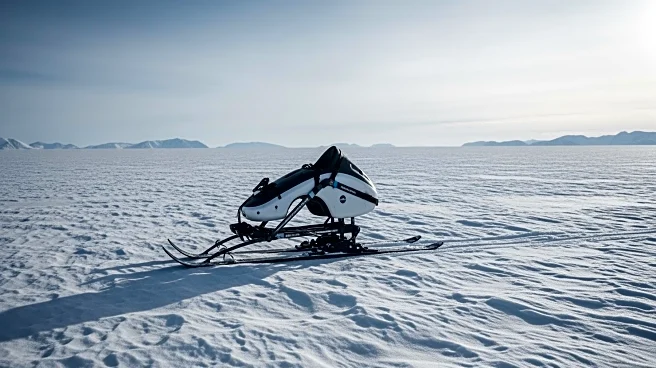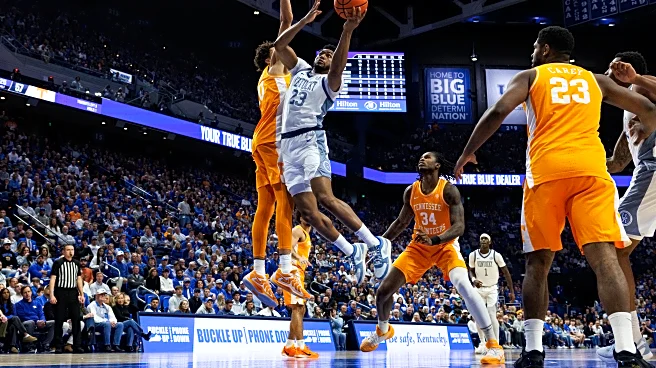What's Happening?
Darren Edwards, a British adventurer who was paralyzed from the chest down after a climbing accident in 2016, is set to attempt a world record by sit-skiing 137 miles across Antarctica to the South Pole. Edwards, a former mountaineer and army reservist,
aims to surpass the previous record of 69 miles for sit-skiing to the South Pole. He will be skiing for up to ten hours a day in sub-zero temperatures using specially modified poles. Edwards has previously completed several challenging physical feats despite his injury, including kayaking 870 miles from Land’s End to John O’Groats in 2021. His upcoming expedition is supported by a team of adventurers, including explorer Lucy Shepherd, Chief Scout Dwayne Fields, and filmmaker Matthew Biggar. Edwards is also raising funds for the spinal cord injury charity Wings for Life.
Why It's Important?
Edwards' attempt to break the sit-ski record is significant as it highlights the capabilities and resilience of individuals with disabilities, challenging perceptions and inspiring others facing similar adversities. His journey underscores the importance of adaptive sports and the potential for innovation in equipment design to enable participation in extreme sports. The expedition also aims to raise awareness and funds for spinal cord injury research, potentially benefiting thousands of individuals affected by similar injuries. Edwards' story serves as a powerful testament to human determination and the pursuit of adventure despite physical limitations.
What's Next?
Edwards' expedition is scheduled for next month, with preparations underway to ensure the success and safety of the journey. The team supporting him will play a crucial role in logistics and morale, helping navigate the harsh Antarctic environment. The outcome of this record attempt could influence future adaptive sports initiatives and inspire further advancements in equipment technology. Additionally, the fundraising efforts for Wings for Life may contribute to significant breakthroughs in spinal cord injury research, offering hope to many affected individuals.
Beyond the Headlines
Edwards' journey may spark broader discussions on the inclusion and representation of disabled individuals in adventure sports. It could lead to increased support for adaptive sports programs and encourage more people with disabilities to engage in physical challenges. The expedition also highlights the potential for collaboration between adventurers and filmmakers to document and share inspiring stories, potentially influencing public perceptions and policy regarding disability and adventure sports.
















